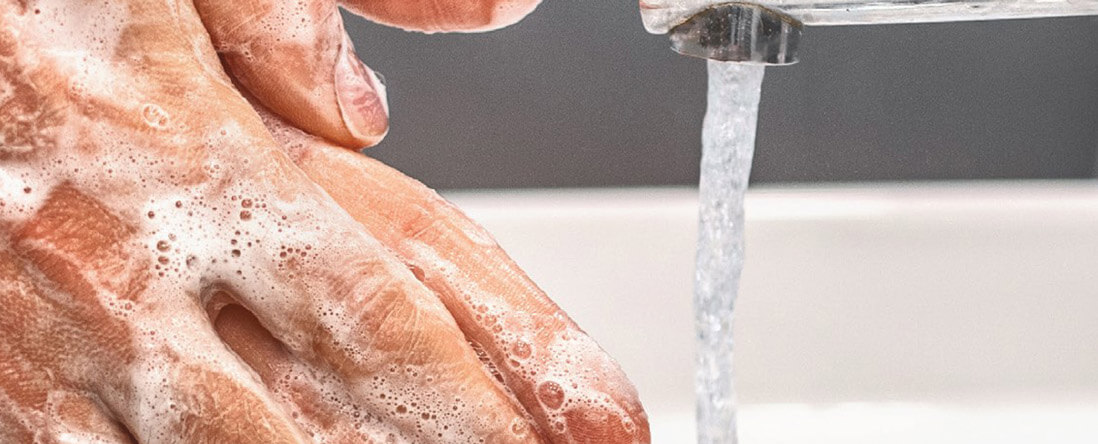newest article

Instilling New Norms
04 December 2023 5:20 pm // Written by Dr Norhisham Bin Main;
At the start of January 2020, the world was alerted to a possible virus outbreak of a nature similar to Severe Acute Respiratory Syndrome (SARS) that occurred in 2003. This outbreak was attributed to a new novel coronavirus that has since been identified as SARS-CoV. The viral infection, now known as COVID-19, was initially confined to the city of Wuhan. However, its continued spread despite lockdowns has led to a global pandemic that has severely affected many countries. The impact of the pandemic has had wide and far reaching ramifications on many sectors from social, work, religious to economic sectors.
Singapore implemented precautionary measures against COVID-19 in January 2020. A multi-ministry taskforce was formed to manage the outbreak when the number of confirmed cases with COVID-19 started increasing locally. The DORSCON (Disease Outbreak and Response Condition) level was progressively raised and has been at DORSCON Orange since 7 February 2020. Subsequently, the taskforce introduced safe distancing measures on 26 March 2020 and eventually implemented a circuit breaker on 7 April 2020. After seeing a decline in community cases, various sectors were reopened in phases as the taskforce urged continued caution and advised people to maintain the necessary precautions in order to reduce the likelihood of another wave of infections.
Precautions that were implemented at the outset included measures and advisories to observe personal hygiene, hand washing and being responsible when unwell. In addition to these, there were educational efforts to raise awareness and educate on the efforts to limit further spread of the virus. These efforts have been and continue to be effective. In fact, these efforts have become part of our daily lives that many are describing them as a new norm.
PERSONAL HYGIENE
It would seem strange that reminders on personal hygiene and washing hands are even mentioned since these should be part of our daily routine. However, before this current pandemic, we may not have paid as much attention to hand washing as we do now. A cursory wash or wetting of the hands are ineffective at removing potentially infective material on our dirty hands. Scientific evidence has taught us that the COVID-19 virus may survive longer on some surfaces. When our hands come into contact with such contaminated surfaces, the virus is transferred onto our hands which then transmit the infection to others when we shake hands, or to ourselves when we touch our face. The reminders are thus intended to improve the standards of hand washing and reiterate the importance of the seven steps of handwashing, and using soap. A hadith from the Prophet Muhammad pbuh states that “cleanliness makes up half of one’s iman (faith)” (Sahih Muslim: no.223) which further exemplifies the importance of cleanliness.

Muslims pray 5 times a day where they are required to do ablution beforehand. Hand washing is the first step in ablution. When coupled with the use of soap, it helps reduce transmission and protects us as the virus is washed away and killed with soap and water. The importance of meticulous hygiene during any infectious disease outbreak must be reiterated as it has been shown to break the chain of transmission. In the past, we would go to the mosques to take our ablution. Ablution areas at mosques are particularly crowded during congregational prayers on Fridays and Hari Raya. There would be long queues and crowding within a confined space such that it would be easy to transmit infections. Aerosolisation also occurs when gargling, rinsing mouths or washing nostrils. Aerosolisation from an infected person within a confined space that is crowded could have disastrous consequences.
FACE MASKS
The advisory on the use of face masks at the start of the outbreak initially advised those who were unwell to wear one so as not to spread any illnesses to others. With better understanding of the mode of transmission and the presence of a pre-symptomatic phase, it became mandatory for everyone to wear a mask. This would reduce the risk of unknowingly acquiring the infection from others. Wearing a mask when one goes out became part of our lives. There were some who took time to get used to it – forgetting to put it on when going out or simply putting it on wrongly. Infographics helped many to learn how to put them on correctly. Then there were those who resisted putting on masks and had to face the law under our country’s existing Infectious Disease Act and newly-enacted regulations to contain the pandemic. The demand for masks had an economic impact as new home-based businesses sprung up and existing ones switched to making reusable masks. It also sparked creativity as masks were made more fashionable with a variety of designs, patterns and colours.
Masks, that are usually worn in the healthcare settings, are now used by the public in the community including work areas. It is not surprising that even in places of worship, masks are worn. When the Islamic Religious Council of Singapore (MUIS) allowed congregants to pray in the mosques, its Fatwa council advised that it is permissible for congregants to wear masks during prayers. The pandemic situation and the highly infectious nature of the virus are among the considerations for this fatwa. Elsewhere in other muslim countries, the same was communicated. Muslim scholars have added that muslims have a role to help ensure that the virus is not transmitted. This supported the use of masks during congregational prayers and when performing religious activities at holy sites in Mecca and Madinah at Saudi Arabia.
SOCIAL DISTANCING
At the height of the pandemic in Singapore, all places of worship, including mosques, were closed to prevent further spread of the virus. Most Muslims are aware of the closure of Masjid Al-Haram in Mecca because of the pandemic. The eventual opening of mosques worldwide saw new precautionary measures put in place. In Singapore, our mosques were reopened in phases with added measures like to take ablution at home, to bring personal prayer mats and a limit of 5 prayer places only that are spaced at least 2 metres apart. The subsequent phase had mosques resuming congregational prayers limited to 50 persons. Congregants were advised to continue wearing masks, bring their own prayers mats and take ablution from home.
Entry to the mosques require prior registration in order to avoid overcrowding and allows for fairer distribution for congregants who want to come to the mosques to perform Friday and other daily congregational prayers. Registration also facilitates contact tracing. Contact tracing is the process of identifying individuals who have come into contact with an individual with an infectious disease like COVID-19. In addition, the TraceTogether mobile phone application that was developed locally further adds to the accuracy of contact tracing. It helps in identifying those who were at the same place with the infected persons. It is important to be aware when we have had such contact so that we may monitor our own health and seek medical attention early.
Mosques like other public institutions have also instituted temperature screening at entry points to identify those who may have a fever. Those with fever are denied entry and advised to seek medical attention. At these entry points, safe distancing measures are in place and it is common now to see people keeping a distance while queuing. The exit points are also separate from entry points to facilitate movement of people and to prevent crowding at the entry and exit points.
Businesses and office-based workers started working from home during the circuit breaker to ensure that operations and other work continues. Staff members of mosque have also been encouraged to work from home where possible. This is in line with the multi-ministry taskforce’s efforts to reduce the number of people out commuting or present in the workplace. We had to learn how to use different software quickly to facilitate working from home. Meetings are no longer held face to face and instead, done virtually over various platforms.
Our schools had to adopt home-based learning when the circuit breaker was imposed nationwide in a bid to stem the spread of the virus. Like schools, madrasahs were closed and their students attended online lessons. Hence, Islamic religious education could thus continue. Adult religious education and religious sermons are now conducted online too. They are also a means to provide support not only spiritually but also psychologically which are important during this trying period.

Sermons for Friday congregational prayers are telecast over the web on SalamSgTV and other platforms. The Hari Raya AidilFitri sermon which our Mufti delivered was also online. The same was done for our Hari Raya AidilAdha. Making the sermons available online is beneficial for those who are unable to attend Hari Raya prayers in the mosques. An important change this year due to the pandemic is that a number of muslims will not be able to perform congregational prayers due to restrictions on numbers. Others are encouraged not to attend congregational prayers due to their high risk of falling dangerously ill from the virus should there be any contact with an infected person. Vigilance in monitoring our own health and looking out for loved ones as well as each other while we go about our daily activities is critical in the ongoing efforts to overcome this COVID-19 outbreak.
The threat from the pandemic is a long haul. There are new waves of infection in areas previously declared virus-free, it is evident that we have to face the reality of a protracted effort to deal with the outbreak. Some of the effective measures that are in place to prevent and contain the spread of infection have to remain to keep us and our loved ones safe. These measures that permeate our individual lives at work, socially and religiously are the new norms. Our individual responsibility in complying to these measures, collectively helps our families, friends and Singapore to overcome this pandemic. Our support for each other – #SGUnited, #SGTeguhBersatu – will help us through this period. While we continue with these efforts, we pray for a better outcome.
The writer is the Head of Division and Senior Consultant, Supportive Care & Palliative Medicine and Senior Consultant, Geriatric Medicine, Ng Teng Fong General Hospital
CONTEMPORARY ISSUES ISU SEMASA KEHIDUPAN MUSLIM MASYARAKAT HEALTH










